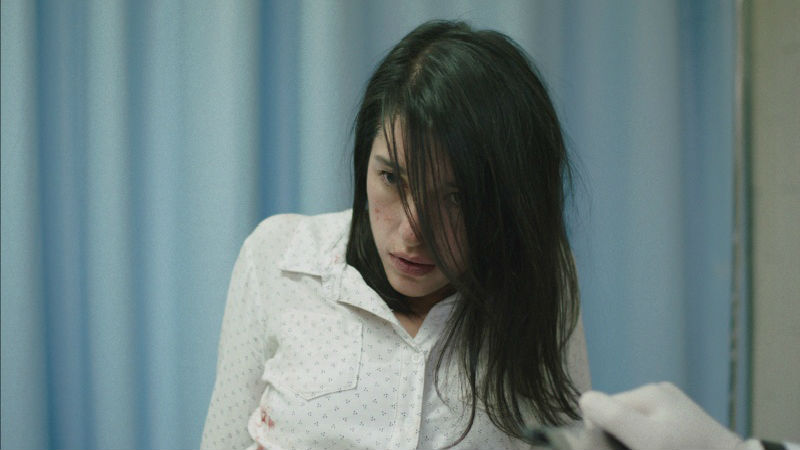QUICK AND DIRTY: LIVE FROM ROTTERDAM
Emiliano (Juan Daniel García Treviño) lives a mining town in the Mexican drylands. His mother disappeared three years earlier after protesting against the setting up of a Canadian-owned mining company. The police are lenient at best, perhaps complicit. So Emiliano decides to conduct the investigation and seek justice with his own hands. Our vigilante hero is hellbent on finding his mother’s body. After receiving a revealing tip from a dying cop, he takes up a job with the influential Aldama family, convinced that they have connections to the now fully operational mining organisation, and that their luxurious villa in the middle of nowhere may harbour some very dirty secrets.
The flamboyant family members couldn’t be more different. Television star Carmen (Barbara Mori) lives with her Instagram celebrity daughter Monica (Ester Expósito) and her new man, the unpleasant, faux hawk-donning, self-appointed alpha male and concept artist Rigoberto Duplas (Fernando Bonilla). Both women are equally beautiful, obsessed with looks and fashion. Monica is strangely fascinated by death, repeatedly staging her own suicide in front of her countless social media followers. She lasciviously watches from a distance as Emiliano masturbates with his innocent girlfriend Jazmin (Maria Fernanda Osio). It’s not long before she makes her own advances, instrumentalising her charms and fame in order to win the quiet young man. Her mother plays power games with Rigoberto, and it is these shifting dynamics that arouse her the most (in other words, she gets horny by encouraging abuse). The burning fire of twisted sexuality is everywhere, and it could have devastating consequences.
The landscape is sunny, vast and empty, with a scorching dry soil and very few trees. The sleek mansion, with thick concrete walls, large glass windows and minimalistic furniture, blends in seamlessly with the environment. The outcome is an inescapable scenario. Characters are trapped – both physically and psychologically -, whether they are inside or outside the house. There is little privacy, except for the occasional sun-dappled shade. These people are imprisoned by the gaze of the members of the family, or by the occasional interloper. Rigoberto is particularly concerned that the Aluxes, an exotic religious sect, may tresspass, harass and even attack them. The police also make an occasional appearance, but they seem to enjoy a strong allegiance with the wealthy family. Emiliano is very suspicious of such relation.
With a duration of just over two hours, Lost in the Night succeeds at gripping viewers from beginning to end. There are a few assaults on plausibility, which may disengage some viewers, but do not affect the overall experience. Most of the characters are multidimensional, allowing the director (who also penned the movie script, alongside Martin Escalante and Paulina Mendoza) to easily manipulate viewers, and to insert one unexpected twist after another. On the other hand, some subplots – the religious cult, Emiliano’s redundant sister – fulfil little purpose, and prevent the story from reaching its full potential. Most crucially, the urgent topics of environmental accountability and justice for missing people (two very Mexican issues) become entirely diluted as the filmmaker seeks an brand new direction for his film. The outcome is an effective thriller devoid of a punchy, more profound message.
Amat Escalante first gained international notoriety in 2013 with the crime thriller Heli, and he firmly established himself as one of Mexico’s most promising directors after the raunchy alien horror The Untamed (2016). Lost in the Night is a welcome addition to aa original filmography full of suspense, twisted eroticism and death.
Lost in the Night showed at the 53rd International Film Festival Rotterdam.









